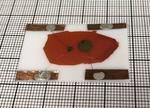Other

“If a drop of creamer falls from a spoon into a swirling cup of coffee, the whirlpool drags the drop into rotation. But what would happen if the coffee had no friction — no way to pull the drop into a …

“The high cost of platinum catalysts used in hydrogen fuel cells limits the commercialization of fuel cell electric vehicles. Scientists are studying alternative catalysts to increase cost-effectiveness and maintain efficiency of hydrogen fuel cells. Researchers are increasingly looking to hydrogen …

“Machine-learning based algorithm characterizes 3D material microstructure in real time Modern scientific research on materials relies heavily on exploring their behavior at the atomic and molecular scales. For that reason, scientists are constantly on the hunt for new and improved …

“When superconductivity material science meets nuclear physics Imagine a wire with a thickness roughly one-hundred thousand times smaller than a human hair and only visible with the world’s most powerful microscopes. They can come in many varieties, including semiconductors …

“Scientists discover new neutron-detecting material for applications in science and national security. Whether you are trying to detect a possible radiation signature from a suspicious package or vehicle, or you are measuring power output in a nuclear reactor, being able …

“Certain materials, like copper, conduct electricity very well. Other materials, like glass, do not. A certain kind of material, called a topological insulator, acts partially like one and partially like the other ― it behaves like a conductor at its surface …

“Argonne combines quantum and classical approaches to overcome limitations in current quantum computing hardware. In recent years, quantum devices have become available that enable researchers — for the first time — to use real quantum hardware to begin to solve scientific problems …

“Harvard/Argonne team clears up a decades-old mystery about the reverse Hall effect in high-temperature superconductors. Phase transitions occur when a substance changes from a solid, liquid or gaseous state to a different state — like ice melting or vapor condensing …

“Materials by design: Argonne researchers use genetic algorithms for better superconductors. Owners of thoroughbred stallions carefully breed prizewinning horses over generations to eke out fractions of a second in million-dollar races. Materials scientists have taken a page from that playbook …

“Coating provides extra layer of protection for battery cathodes. Building a better lithium-ion battery involves addressing a myriad of factors simultaneously, from keeping the battery’s cathode electrically and ionically conductive to making sure that the battery stays safe after …
